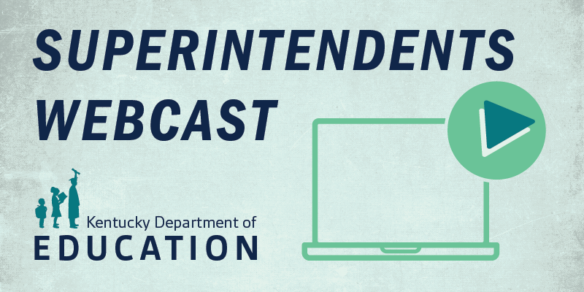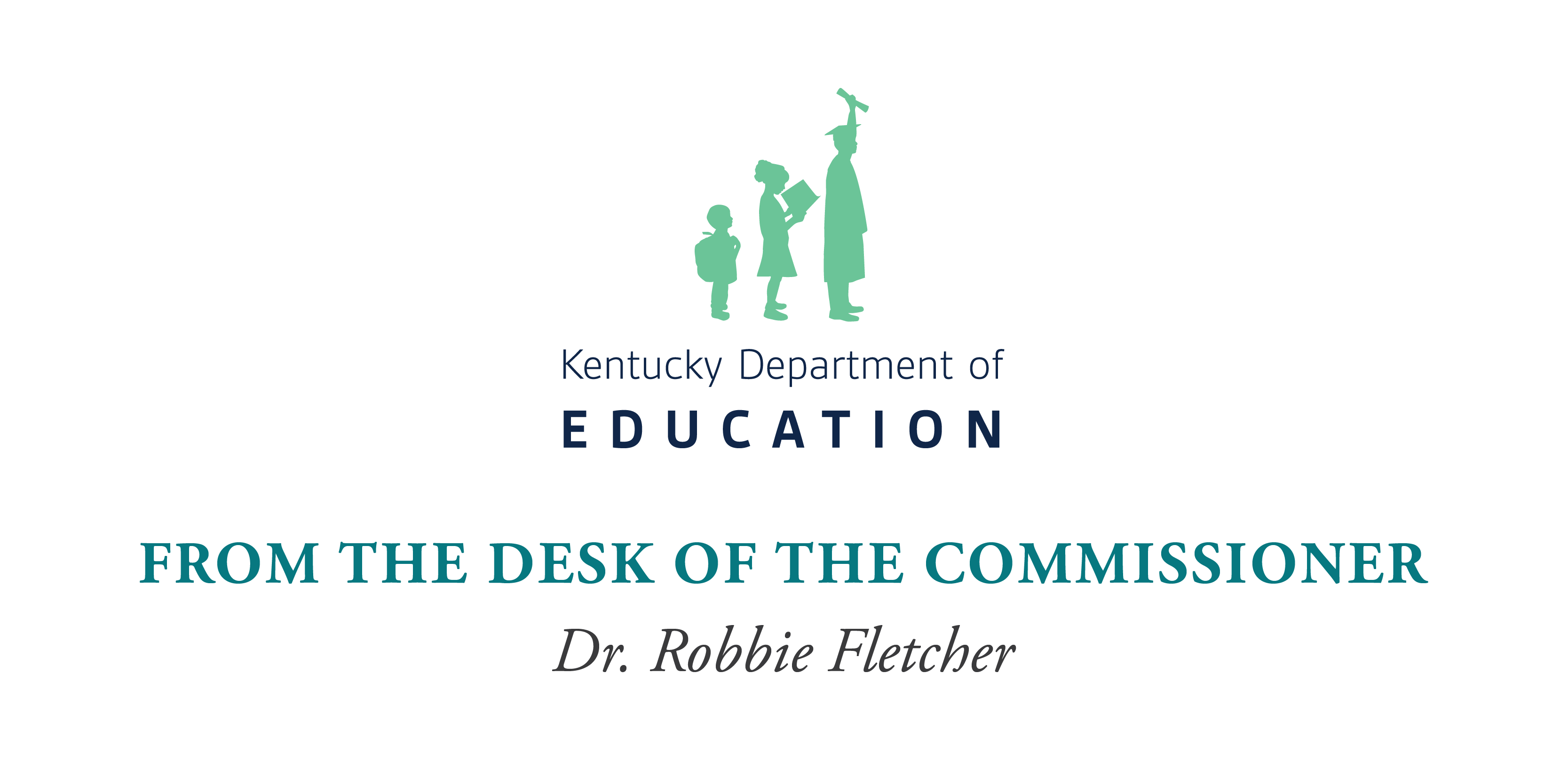
Members of the Kentucky Department of Education (KDE) Division of Innovation provided an update to superintendents on the new Kentucky Innovation Guide, a resource detailing the innovative work happening in Kentucky schools, during the Superintendents Webcast on April 11.
Division Director David Cook said the guide is intended for use by superintendents, school staff members and other stakeholders in the community who are interested in supporting and facilitating more vibrant learning experiences and more innovation in Kentucky schools.
“It provides real-world experiences from districts who are implementing these approaches already so that districts who might be interested in a particular kind of approach to deeper learning might do so and find some great examples of how to do that,” he said. “It gives you great advice on policy and how to align with current state policy and even gives you ideas about how you might create even more innovative environments that might not be even mentioned in the guide.”
The Kentucky Innovation Guide outlines several networks and initiatives KDE has either created or partnered with to support districts and schools. It also highlights several Kentucky school districts like Fleming County and their efforts to implement personalized learning, which is part of the vibrant learning experiences described in the United We Learn vision.
Work-based Learning
Members of the KDE Office of Career and Technical Education provided an update on work-based learning.
Tina Brogli, work-based learning coordinator in the Office of Career and Technical Education, said there are eight types of work-based learning for districts interested in helping students gain the opportunity to explore potential careers and help employers improve their employee pipeline:
- Entrepreneurship;
- Service learning;
- Mentoring;
- Job shadowing;
- School-based enterprise;
- Internships;
- Cooperative education; and
- Registered apprenticeships.
Brogli said there are requirements in place for those interested in work-based learning, including background checks for employers and individuals who provide direct supervision and mentoring of students. More information can be found on the National Background Check Program webpage on the Kentucky Cabinet for Health and Family Services website.
Brogli said the 2024-2025 Program of Studies guide is out now, which will help administrators find valid cooperative education and internship course codes as they’re related to career and technical education (CTE) programs.
Holly Tracy, data manager for the Office of Career and Technical Education, provided an update on 2023-2024 accountability reporting as it relates to non-course work-based learning:
- To be included in 2023-2024 accountability reporting, the deadline for a school or district to apply to the Kentucky Board of Education to earn accountability for a student’s school-sanctioned individual work experience that was not associated with a course code is May 1.
- To be considered for approval, the school must demonstrate direct involvement in the preparation and technical skill attainment the student received prior to and throughout the student’s work experience.
- Verification of hours worked, an employer evaluation and signatures from the employer, principal, student and parent or guardian are required with the application submission.
For cooperative education and internship placements that are associated with a valid course code, please visit the FAQ: Co-op Education and Internships for State Accountability and adhere to traditional accountability data reporting requirements.
Tracy also provided links to work-based learning data entry resources:
- Career Readiness-Work Based Learning Data Standard; and
- Infinite Campus Career Readiness
ARP ESSER Funding
Members of the KDE Office of Finance and Operations provided an update on Elementary and Secondary School Emergency Relief (ESSER) funding.
The U.S. Department of Education (USED) recently provided additional information regarding the reporting of federal interest. If ESSER funds were used to acquire or improve facilities, a Notice of Federal Interest must be recorded in property title documents by the district by Jan. 28, 2025, if the cost of renovation, remodeling or construction was at least $1 million. Ross said this may also be required if project costs fell below $1 million and the project fits certain criteria:
- If the ESSER funds represent “the vast majority” of the total value (such as building with a total value of $1.5 million that used $900,000 in federal funds);
- If the U.S. Department of Education (USED) determines that a district is in high-risk status, USED may require a Notice of Federal Interest be recorded to protect the federal interest from other liens that could prevent the building from being used for its educational purpose; and/or
- If the federal interest in the project is insignificant but the project is above $1 million, such as building with a total value of $100 million that used $1,000,005 in federal funds.
Even if you don’t have to record the federal property interest, Ross said you must report property status to KDE annually for at least the first 15 years on renovation, major remodeling, construction or real property projects in which federal dollars have been spent. KDE is working on a template for the recording of federal interest and will provide districts with links to the federal forms for reporting property interest.
USED provided some additional information as to when Davis-Bacon Act wage rates must be paid by a district for construction projects. Generally, district construction-related contracts worth more than $2,000 are subject to Davis-Bacon Act requirements. However, districts using their own personnel for projects such as the assembly and installation of playground equipment are not subject to the requirements.
Ross also provided an update on the timeline for American Rescue Plan (ARP) liquidation extensions. The Grant Management Application and Planning (GMAP) system opens for ARP liquidation extension requests on May 6. Districts seeking a liquidation extension must obligate funds by July 1. KDE will then submit a liquidation extension to USED by Aug. 15.
The next Superintendents Webcast is scheduled for May 14.




Leave A Comment